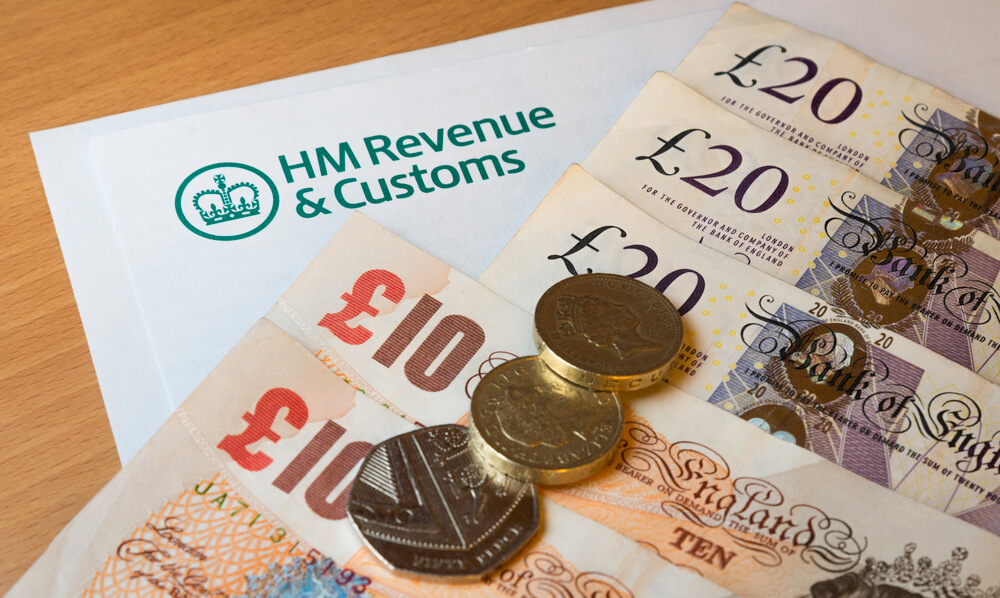Are you planning to join the entrepreneur community of the United Kingdom? The good news is that registering a company in the UK is simple. There are 5.9 million registered businesses in the UK right now. Before you register your business you need to ask yourself: What type of corporate entity will your business be? Do you have a business plan? Have you decided on the name and address of your business? If the above questions have been predetermined, then you are ready to go. If not, then maybe we can help you.
What are the requirements to register a company in the UK?

Registration of a company is easy and simple and can be done over the internet. Alternatively you can also do it over the post or via the Company House website, which costs just £12. You must be clear about your employees and the amount you are paying them.
Company Legal Structure
Before registering your business with Companies House, you must first decide on the legal structure of your company. The most common structure entrepreneurs choose is the Private Company Limited by Shares. The types of legal structures are discussed below under Legal Structures.
Tax Registration
A requirement for a registered company is to register with the corporate tax department three months after you have started trading. You can be eligible for the self-employed personal allowance grant when you’ve established your company in the UK as a non resident provided you have a work visa. Having a work visa means you pay tax on income you generate from your business. You can register for tax over the phone or online with the HM Revenue and Customs. Paying income tax in your home country may also be a requirement.
UK Bank Account
Opening a business bank account in the UK is not legally required, but having a UK bank account is useful. Receiving payments from your UK business customer through your domestic bank can be expensive, thanks to exorbitant international money transfer fees. Also, even if you are not required by law to have a director and shareholder who has a UK resident, banks may require them to have UK residency. Here’s our guide on how to open a bank account in the UK.
You may also want to give virtual bank accounts a thought. If you are setting up a business in the UK that will regularly be sending and receiving money to and from across the border, there are ways to cut on conversion costs and transfer fees. Banks charge above the mid market rate, the actual currency rate they use to move money from one bank to another.
Whereas if you transfer money through a virtual bank account by B2B Pay, you save a significant amount of these costs as well as get your money as soon as 24 hours depending on the bank. With a virtual bank account, you can secure your own European IBAN you can use to transfer money to 212 countries in 32 currencies using the same low rates.
Legal structures
Sole Trader
If you want to start a business in the UK, the easiest way is to become a sole trader. This legal structure allows you to own the business on your own and you may or may not hire any employees. Freelancers and self-employed individuals in the UK fall under this business classification. To register as a sole trader you need to head over to the Companies House website and register your company, you will need your National Insurance number, and you are required to register for self-assessment with HMRC.

Aside from easy set-up, another advantage of starting your business as a sole trader is that all profits in your business are yours since you have no partners to share them with. However, you have personal liability for all debts of your company. You are also responsible for arranging income tax and National Insurance payments.
Private Limited Company (Ltd)
By setting up this type of limited company, you separate its legal entity from yours and the other individuals running it. A limited company is incorporated by registering at Companies House. No public trading of Ltd shares is allowed.
Private Limited Company (PLC)
The difference between a PLC and an Ltd is that shares in a PLC can be publicly traded. A minimum capital share of £50,000, at least 25% of which is paid before setting up is required. This business structure offers you a number of advantages. A private limited company allows you to effectively manage your tax. To illustrate, you can receive your income as a company director in the form of company dividends. Doing so allows you to pay less income tax. You can also protect your financial assets, like your properties and car, from the risk of company financial trouble.
If you want to register as a Private Limited Company the legalities are slightly different, you will need a board of directors and are required to pay tax as an employee and as a director of the company. You must also have:
-
At least one director
-
At least one shareholder
-
A memorandum of association
Business Partnership
Lastly, you may register as a business partnership. In this legal corporate entity you and your partner will share the profit and loss of the business, as well as liability.
What documentation do you need to register a company in the UK?
The UK’s Companies House requires the same documentation, processes and fees from a foreign national as they do from a British national. Make sure to gather and prepare the following information and documents:
Business Name
Make sure to check that the company name you choose is still available. If you are a sole trader, setting up your name and address is easy as you can register with your name. A sole trader with a limited company can consider registering his name as a trademark so no one else can use it. You also need an address. Private limited companies need offices big enough for their team whilst sole traders offices are not inspected and they may even work from home.
Residency Status and Address
You can set up a company in the United Kingdom, no matter your nationality. Foreigners don’t need to be living in the UK or have a resident status. What’s required is for your company to be registered to a UK address for correspondence and accountability. Obtaining an address to register with Companies House is easy for foreigners - whether it’s an acquired property, a rented property, a property of your family member or friend, or property of anyone who consents to have your company registered to their address. You can even register a virtual office address.
Business Activity
Companies House requires new business applications to specify business activity. You can do this by selecting the Standard Industrial Classification (SIC) code appropriate to your business.
Working Visa
You can set up a business in the UK without a working visa. However, you cannot work there without this visa, depending on your nationality. Find out more about this from the website of the UK government.
Allot a considerable amount of time when applying for a visa. You may apply 3 months ahead, although approval or denial of Tier 1 entrepreneur visas can happen within 3 weeks.
Director Information
To set up your private limited company in the UK, you need at least one director. The director does not have to be a UK resident. Collect and prepare the following director’s details:
- Full Name
- Date of birth (must be 16 years or older)
- Residential address (not on the public register)
- Service Address (residential or other address)
- Nationality
- Occupation
Shareholders Information
If the company you’re starting is a publicly traded company, you are required to issue shares upon business inception. You have to have at least one shareholder (can be the director or another individual) to be able to do this. The director does not have to be a UK resident. Collect and prepare the shareholder’s details.
If the shareholder is a Person with Significant Control (PSC):
- Full Name
- Date of birth
- Nationality
- Residential address (not on the public register)
- Service Address (residential or other address)
- Nature of control (percentage of share)
-
Three security details (to serve as an online signature):
- First three letters of town of birth
- First three letters of town of father’s forename
- First three letters of town of mother’s maiden name
If the shareholder is not a Person with Significant Control (PSC):
- Full Name
- Date of birth
- Nationality
- Residential address (not on the public register)
- Service Address (residential or other address)
-
Three security details (to serve as an online signature):
- First three letters of town of birth
- First three letters of town of father’s forename
- First three letters of town of mother’s maiden name
Person with Significant Control (PSC) Information
(If the person is not a director, shareholder, or secretary)
- Full Name
- Date of birth
- Nationality
- Residential address (not on the public register)
- Service Address (residential or other address)
- Nature of control (percentage of share)
Share Allocation
When registering your business as a private limited company, you have to assign shares to your shareholders.
Documents of Formation
Two sets of documents are required when registering a private limited company in the UK:
- Memorandum of Association
- Articles of Association
Basically, these documents are contracts of accountability among parties involved. They set down in black and white the agreements on the manner of running the company.
After collecting all the information and documents required, you can proceed to registering with Companies House and HMRC.
Note: At any point after setting up your business, you can amend any of the information you have provided, such as changing the business address when you move to a new location.
More requirements may be necessary depending on your type of business. These could be:
- Insurance
- Permits of licenses (such as if your business is involved in playing music or selling food.)
- Laws to adhere to if you store personal information or are involved in buying and selling products abroad.
How long does it take to register a company in the UK as a foreigner?
You can register your company within 24 hours, depending on your company operations. To avail of the same-day registration, file your application to the House Companies not later than 3 PM. You can register a branch of your existing overseas company in the UK within three weeks.
Registering a company in the UK as a foreigner is straightforward and can take as fast as 24 hours once you have all the necessary documents and details in hand. However, should you want to skip much of the work entailed, you may opt to hire a company formation agent.
The United Kingdom’s exit from the EU on January 31, 2020 may require businesses (European entities formed under EU law, UK companies with cross border merger, UK companies with an EEA corporate officer, and EEA companies) to change its company registration starting January 1, 2021. Check this UK government’s page for guidance and updates.
Since you are starting a business in the UK, you may also want to find out more about transferring money from the UK to the EU. Moreover you can read about the financial implications of Brexit here.
Page content
About the author

Disclaimer
This publication is provided for general information purposes and does not constitute legal, tax, or other professional advice from B2B Trade Payment Services AB or its affiliates, and it is not intended as a substitute for obtaining advice from a financial advisor or any other professional.
